 Interview by Rebecca Pettett Featuring The Galactic Exploration Collection Rebecca: What was the first story you wrote about? Ann: I’ve been writing from a very early age, so it’s hard to remember what my first story was. My first good story was written for a writing contest in fourth grade and was called “Noella” after the main character. I’m proud to say that it made it to the finals. Rebecca: Where is your favorite place to go for inspiration for a story? Ann: My favorite place to go for inspiration would probably be outside on a nice, sunny day. It could be on my porch or somewhere in my yard. Rebecca: What is your favorite part of the writing process? What is your least favorite? Ann: My favorite part of the writing process, I think, is getting to develop the characters and just coming up with a story in general. My least favorite part is revising, because it is EXHAUSTING! Rebecca: What is the hardest thing for you to capture on a piece of paper? Ann: A water buffalo! Just kidding ;) My real answer would be that it is hardest for me to come up with a good ending to a story. Rebecca: What main piece of advice would you give a new writer? Ann: One thing to do if you want to become a good writer is read well-written books. Usually, I prefer the older, classic books that have stood the test of time. Another important thing to do is practice writing. When you write, your writing doesn’t have to be super long, just write often and your writing will become better. Rebecca: For some last minute fun: What do you like to do in your free time? Ann: I really enjoy singing and I also love to read. Rebecca: And what is your favorite dish to eat? Ann: Hmmm...there are so many good ones. One fun dish that my family sometimes eats is taco boats. It’s a yummy mixture of taco-like ingredients put into a soft tortilla shell shaped like a boat! Another good dish is the mashed potatoes that my mom and grandma make at Thanksgiving time. They use the same recipe and it tastes SO GOOD!
1 Comment
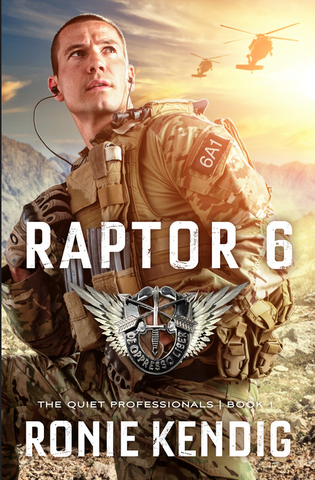 Interview by Brock Eastman Featuring Raptor 6 An action packed thriller with a touch of romance is just what Ronie Kendig cooked up in her latest military thriller. Raptor 6 (Shiloh Run Press) adds to Kendig’s library of award winning series that have attracted a loyal following of fans. I myself am impressed with Kendig’s ability to deliver realistic mind-blowing action forcing you to burn through the pages quicker than the bullets flying from the muzzles of the terrorists’ machine guns you’re reading about. Brock: Raptor 6 is not your typical romance novel, you incorporate combat, action, and other elements that usually take a back seat in a romance novel. Yet in Raptor 6 you've done a great job creating a balance of action, intrigue, and romance. Is it difficult to strike this balance? Ronie: I confess this is tough for me, because my novels hover on a thin line between “true romance” and “true suspense.” I have readers who beg for more romance, but on the other end of the spectrum, I have those who are quite vocal in their opposition of a romance thread. For me, I’m a romantic. But I do not want a book of just romance—I want the action and adventure, too. I’m pretty sensitive when things swing too far to one side, so when I start to feel that barometer getting heavy on one side, I work to balance it. If I read through a section and there’s not enough romance or the romantic angle feels forgotten, I’ll tease it up a little. And to be fair, the level of romance also depends on the book itself, and the characters. For example, in Firethorn, the romance thread was pretty light because theirs was more of an intellectual romance. In Raptor, the romance is more in the form of my hero providing protection, the only thing he feels he has to offer. Brock: Why have you chosen to right these combat romance thrillers? Ronie: There’s a myriad of reasons, but ultimately, it boils down to two things: 1.) these type of stories are the ones I love to read and watch in a movie theater, whether it be Lone Survivor or Divergent (strong “military” element among Dauntless), and 2.) passion—I have a passion for our military. Brock: Why is the military close to your heart? Ronie: I cannot fully explain why, without saying it’s a purpose and passion the Lord has put on my heart. I grew up an Army brat and even after my dad retired, he took a job as a civilian contractor on a base, so I was around the military, our soldiers well into my early twenties. But really, in the beginning, it was the romanticized notion of our military heroes, those undaunted individuals, that drew me into writing. Then, one day about 6 or 7 years ago, I was in a Sunday School class with my in-laws, and I heard a woman, who was married to a Navy SEAL, speak to the group. She asked for prayers for her husband’s salvation, but also for his anger, what I believe to be birthed out of PTSD. Hearing her request, watching her story unfold and a family destroyed by PTSD, I knew I could never again write a military story without showing the toll it takes on our military heroes. Brock: Wow, that sounds like a very key moment and a God assigned mission for you. What is the reaction from your readers? Ronie: Those readers who’ve been with me from the beginning know what to expect from a Rapid-Fire Fiction (my brand) novel—intense action, raw characters, and real life. They’ve asked me to keep the edge to the novels, and they often thank me for writing “real life.” Brock: What sort of research do you do for your series? Ronie: Research has been ongoing since I started writing military stories, but more so with the Discarded Heroes series (I wrote the first one in late 2008 and early 2009). I subscribe to several online publications and follow many, many military and military advocate sites and Facebook pages, and my choices for reading and movie-watching are often military related, including watching documentaries on special operations command and subsequent fields. For Raptor, the involvement of cyber security was both convenient—my husband works in the industry—but also incredibly challenging since most of the information is still protected information. Though I had two sources with that security clearance, there was not a lot they could divulge without compromising themselves or our soldiers—something I would never ask of anyone. So, I did the best I could with the limited knowledge they could share. Brock: Why did you choose to focus on a male protagonist in this series? Ronie: This almost feels like a trick question, but I’m not 100% sure. The great irony is that, as an author, I am more comfortable writing a male character, but I’m also more intrigued in writing the male character. In the Discarded Heroes series, my protagonists were also male, and in one of the military working dog series, the first book was a male protagonist. Brock: How many books are planned for this series? Ronie: The Quiet Professionals is a three-book series that focuses on a Special Forces team known as Raptor (formerly identified in the A Breed Apart series as ODA452). Brock: Can you give us a hint at the next book? Ronie: The next book in the series is Hawk, a story that will focus on Brian Bledsoe, who is challenged with the great dilemma of choosing who to save—his Green Beret brothers or a group of women and a child depending on him to save them from a brutal storm. Brock: Are you working on the next book? Ronie: Right now, I am working on a novel serialization with my publisher called Operation Zulu: Redemption. OZ:R will come to readers this summer in five installments, starting July 4th. This series focuses on a team of women who, five years ago, were the first all-female special operations team. After a deadly mistake, they are hiding from the enemy who sabotaged their mission. Brock: What is your favorite genre to write for? Ronie: Gah! Another trick question? I am torn between two genres—writing my military suspense/thrillers and speculative fiction, which I’ve been writing since before my first contract for my debut novel. Brock: Where do you like to write? Ronie: Where I write is not as important to me as being sure to have a pair of noise-cancelling headphones or ear buds. I can write pretty much anywhere as long as I can audibly block out the rest of the world. Brock: Are you a full time writer? Ronie: While writing is my only career at this moment, I would say that homeschooling my teens keeps me from qualifying myself as a full-time writer. I have four more years of homeschooling, and I really want to make it the best for my kids. Brock: How long does it usually take you to write a single book in the series? Ronie: This varies greatly one what I’m writing and my deadlines, but in general, it takes me about 4 months to craft a solid draft. Unlike some writers, I do not write in terms of drafts, meaning I don’t create a wretched first draft, then clean it up in a second, and perfect in a 3rd (or 4th. . .5th. . .) draft. Because I am easily discouraged and drained during an editing process, I work very hard to write what I want in a scene. I will not move on from a scene until I *know* it’s right. Each day/night I come to the writing table, so to speak, I will read back through the last chapter or two I’ve written and feel it out, make sure it’s right and moving in the correct direction. If it’s not, I fix it. But if I’m okay with it, I press on. However, that said, this serialization project I’m working on right now is a very different beast—I’m writing 15k words a week and will have about 205k in three months. I’ve never done that, especially not with the content pretty much ready for print. In addition, I’m editing the previous episode and proofing an even earlier one—all in the same week. It’s a rigorous, borderline deadly pace for me, but I’m in love with the story and characters, so I’m making it happen. Brock: Do you plot or outline the entire series before you begin writing, or do your books take on lives of their own? Or is there a combination? Ronie: Again, this depends on the story. For my military novels, I start with a skeletal outline (maybe a page long) and then start writing with the main plot and character goals in mind. However, for the serialization project, my publisher required a detailed outline of each episode (at the time, there were 13 individual episodes). So, I have a thorough roadmap through that story and its characters, though it still demands some creativity and adjustments as I write. A year ago, I would have decried the detailed outline, and in fact, I whined a great deal about having to write that thing out, but now... I am grateful for how “easy” it has made getting the story, arcs, and characters on the page. At the same time, I’m not at the point where I would say I prefer to outline. It—and I—am still a work in progress. 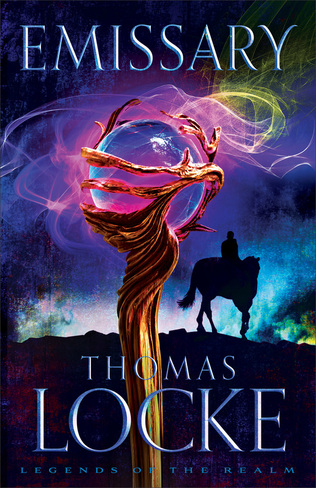 Interview by Brock Eastman from 2014 Featuring Legends of the Realm A joyful smile and youthful enthusiasm greets you when meeting Davis Bunn. We sat to talk about his writing, when with an ecstatic smile he asks, “Would you like to hear about my two new series?” A fan and author of sci-fi and fantasy myself, how could I resist? He explained at the time, this was the first interview in regards to these books and that I’d have to sit on the interview until now, so here it is. The two new series written under the pen name, Thomas Locke, are “Legends of the Realm” and “Fault Lines” releasing in 2015. And so Davis Bunn and I sat and discussed our mutual appetite for these two genres and his series that would fill them with light and hope. He explains that when he grew up he had a passion for science fiction and fantasy books, but of late he’s become increasingly distressed about the growing darkness that predominates sci-fi and fantasy these days. “Last year I had an epiphany about what had been lost in fantasy in particular,” Bunn says. He clarifies, “This isn’t so much the case with science fiction, because it is a relatively new thing, so it doesn’t have the same legacy.” He explains fantasy has been around since the Greeks, but the amount or authors writing the classical structure and books of that structure being published has shrunk. When people hear ‘epic fantasy’ they automatically think it’s a long book with many pages, but Bunn points out that the Hobbit is a relatively short book, yet it is an epic fantasy. Epic fantasy follows the hero’s journey and that’s what makes it such, not a large word count. Bunn explains, “The hero’s journey is about the dilemma that the character faces inside (internal quest) as a reflection of the dilemma the character faces on the outside (eternal quest). The only way they will arrive at a positive climax is if the main character learns the definition of right action, right vision, and right moral structure.” Bunn smiles as he gathers his next thoughts, it energizes me and causes me to want to hear more. He has this gift for explaining the depths of his passion for writing, that you draw knowledge and excitement from as he reveals the inside workings of his art form to you. Bunn begins again, ”A year and a half ago there was a real feeling of being impacted by an invitation to do something about the change in styles.” Simultaneously he had been talking about this issue in literature with a dear friend who is the head of the largest publisher in Italy. He decided then that he was going to try to right a classical fantasy for the modern reader. He started by taking the heroic structure and built the classical fantasy around the idea of a contemporary suspense. Davis explains about this first book, Emissary, “The story is not contemporary suspense, but the writing style is so that it has quick description, strong point of view, and two very powerful central characters that are inexplicably bound together long before they ever meet. With a dilemma that gradually grows to the point that either they learn what they need to learn or the world is in great peril.” He stops and thought I wouldn’t have guessed it possible, his eyes get brighter and his smile larger, “I had such a great time, It was a ball, I had such a great time (writing Emissary.)” And though Bunn is a long established author with more than 8 million copies in print, finding a publisher was bit harder than he expected. “I didn’t know at the time, this is so far away from what I normally write.” But he loved the book and the genre so much he actually started writing the sequel before placing the series with a publisher. But then he was struck with a new idea, one based around the same core moral construct, so he stopped writing the sequel and moved to this next project. In the end he had a completed fantasy novel and a completed science fiction novel. He clarifies that, “Its what is called near time science fiction.” This brand of sci-fi is set in the contemporary world, but includes an area of cutting edge scientific research or in some cases like, the movie battle for LA, an alien invasion. The advantage for near time sci-fi is that it’s not sold in the science fiction section of the bookstore, but the mainstream fiction shelves. Davis points to one of his (and mine) all time favorite authors, Michael Crichton's Jurassic Park (the first one only.) The world was now, but the science was cutting edge and resulted in a change to what exists at this time and place. So in June of 2013 Davis was sitting on two completed novels one sci-fi and one fantasy, with no publishing home. He chuckles, “They were just orphans, little globules, of electronic data sitting in my computer. Just lonely lost diamonds and I was so pleased with them, thought they were incredible.” He showed them to a couple of his publishers, but they thought he was nuts. The stories were so far away from the writing that his fans looked to him for. Then Revell stepped up and decided to take the books, with two conditions. One, the books would come out under a pen name and Davis Bunn would not be attached to the physical book in any way, only on the web would the connection be known. Second, he had to write 2 books a year, 1 sci-fi and 1 fantasy, with 6 books total. The fantasy books would come out each January and the near-time-sci-fi would come out each August. He explains that these books are not overtly Christian books, while they contain nothing that would turn a Christian reader away, they will appeal to a much broader audience, much like Lord of the Rings has. Indeed the fantasy, Emissary, has a Tolkienesque heroic structure, while Trial Run is a mainstream near time sci-fi. I asked Bunn to explain more about the six books. Would the sci-fis be connected to each other and the fantasies be connected to each other, or would they all be individual novels? He explained that all have a central theme and central characters, but each story brings in new characters and places, the question asked in each book is different. Again he mentions, Michael Chriction, as an example. “The problem with the sequel to Jurassic Park (Lost World),” he begins, “was that it asked no new questions.” His books will be different, each asking a new question to be solved. For example, Trial Run, will ask the question, “What if we arrive at the time where privacy became a myth, what happens?” After all, we live in the time of Snowden and the NSA data mining. Lastly, I wanted to know what his expectation for his fans adapting are? He explains while many he hopes will enjoy these new books, he does expect to engage with a younger new audience that his other works have not appealed to. He will also continue to write other evangelical family friendly fiction under Davis Bunn. 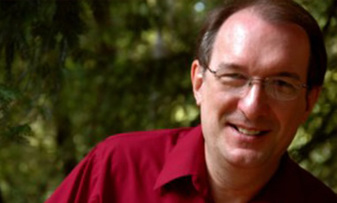 Interview by Brock Eastman Featuring the Marcher Lord Press Brock: Do you enjoy Sci-Fi as much as I do? Or how about speculative and fantasy fiction? You may not have heard of the recent acquisition of Marcher Lord Press by Steve Laube, and you may be wondering why it matters to you. Well, Marcher Lord Press has produced many award winning books over the years and even launched several authors specifically in the genres I mentioned above. Genres, I love, genres I write about. So I wondered why Steve, who also has a literary agency, found Marcher Lord Press such a prize to be had. What did he see in these genres that made him feel this was good investment of his resources? This question gave me hope. He must know that these genres are often overlooked by the industry; from his experience of placing his authors in contracts. So I asked, “Why did you (Steve) acquire Marcher Lord Press?” Steve: Jeff Gerke, who I have known for many years, had asked me for some advice about his company. In the course of the conversation I wondered if he had considered selling Marcher Lord Press. That led to a series of questions and my interest was piqued. I’ve long been an advocate of the Speculative genre. So the idea of taking over Marcher Lord Press felt like a God-directed opportunity. My passion for this genre has never wavered. It has been a privilege over the years to work as an editor and as an agent with some of the best this genre has had to offer in Karen Hancock, Kathy Tyers, Chuck Black, Patrick Carr, Randy Ingermanson & John Olson, Lisa Bergren, Donita K. Paul, Carla Laureano, Tosca Lee, Bryan Davis, Sharon Hinck, Jared Wilson, and others. My hope is to continue those efforts as a publisher and build upon what Jeff Gerke created these past few years. Brock: What is your outlook for the genres Marcher Lord Press will serve? Steve: The Speculative category has three umbrella genres that MLP will serve. Fantasy, Science-Fiction, and Supernatural (or what some call paranormal). Each of those umbrella genres have a multitude of different stories within them. For example within science fiction we have time travel, space opera, first contact, military, space exploration, and more. If you go to a general market bookstore and look at that section you will find the wide spectrum of genres available. Brock: Any new releases planned or on the horizon? Steve: New releases will start late Summer or early Fall. As of this interview there are 4 or 5 new releases planned for that season. Brock: Are you currently seeking new projects for Marcher Lord Press? Steve: Absolutely. And always will be looking for the very best writers with the very best stories. Brock: Will you keep the name intact? Steve: Yes. Jeff Gerke built Marcher Lord Press into a strong brand. It is common for MLP titles to be a finalist or win a number of prestigious awards. You can see the nearly 40 titles we have already and sign up for a monthly newsletter @ www.marcherlordpress.com. Brock: How will Marcher Lord Press fit into your agency? Steve: Marcher Lord Press is a separate company from the agency. As such it is run in a way that all authors and agents, including those with The Steve Laube Agency, must submit proposals to MLP for consideration. Brock: What advantages do you see to having an agency and a publishing house? Steve: An excellent question. There is much about the publishing business that goes on behind the scenes and can be somewhat mysterious or difficult to get specific answers; questions concerning sales channels, metadata issues, piracy, managing print and distribution costs, etc. All of it is usually proprietary information and is not readily shared. By entering the publishing side of the equation it will provide insight into what works and what doesn’t in marketing, work-flow efficiencies, acquisitions, and a host of other things. Brock: I want to thank Steve for taking the time to answer my questions. As a reader and author of Speculative Fiction, I am encouraged by his outlook and excitement for the genre. Be sure to stay tuned for many great things from MLP. Steve Laube, a literary agent and president of The Steve Laube Agency (www.stevelaube.com), has been in the book industry for over 33 years, first as a bookstore manager where he was awarded the National Store of the Year by CBA. He then spent over a decade with Bethany House Publishers and was named the Editor of the Year. He later became an agent where he has represented nearly 1,000 new books and was named Agent of the Year by ACFW. He was also inducted into the Grand Canyon University Hall-of-Fame by their College of Theology. In addition, he is the president and owner of Marcher Lord Press (marcherlordpress.com). His office is in Phoenix, Arizona. Note: After buying the publishing company, Steve Laube changed the name from Marcher Lord Press to Enclave Publishing. 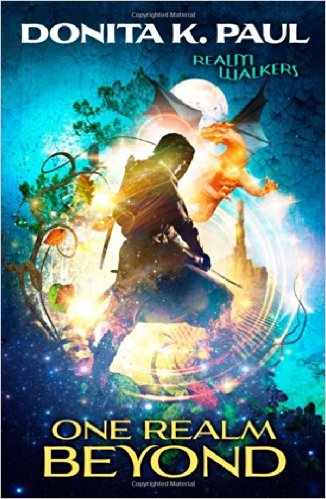 Interview by Brock Eastman Featuring Realm Walkers I am honored to have interviewed Donita K. Paul about her new book series Realm Walkers. Donita is known for being a pioneer in Speculative Christian Fiction and she brought dragons to life in a phenomenal and God honoring way with her best-selling DragonKeeper Chronicles. Now she brings us an exciting new series. I hope you’ll enjoy this brief look into her sure-to-be-best-selling series. Brock: What inspired you to create Realm Walkers? Donita: One day I was thinking about Christopher Columbus. Then I thought about all the people who thought the world was flat. And I wondered what would happen if your world was flat? How would you get from one pancake world to the others? Is there a federation to demand your allegiance? Are there dragons? Of course there are dragons! Brock: Yes dragons! Can we expect any new kinds of dragons in this series? Donita: The dragons we come across in this fantasy realm are mor dragons. They are shapeshifters. Most mor dragons can manage 4 forms. Their dragon form, a fighting form, a flight form, and a camouflage form. Brock: Sounds complex. 4 forms? Do you sketch out what the dragons look like in each of these forms? Could we see a sketch or two if you have one? Donita: I can’t send you pictures. It would have to be a picture of a haystack or a cow or a boulder or a warhorse or . . . When a dragon shifts, the purpose it so look like the object or person or animal. However, on one of my Pinterest boards, I have some rabbits who look like shapeshifters to me. Click here to see them. Brock: How did you come up with the name Cantor D’Ahma? Donita: A cantor is the chief singer of the liturgy in a church. He is also a religious official. In One Realm Beyond, our hero is destined to be a realm walker, who will serve the people as a representative of the God-figure, Primen. Primen is pronounced in two syllables, the first one like mathematical prime, a prime number. D’Ahma indicates that he was trained by someone named Ahma. Brock: Can you describe our main character? Donita: Cantor was given into the care of a very old, retired realm walker, Ahma. He’s an average, healthy young man, eager to fulfill his destiny. He’s been brought up to be a realm walker. Now all he has to do is attend the last of his training, polishing his skills under the watchful eye of the Realm Walker Guild. Oh, and on the way he has to acquire his lifelong partner, a sidekick, called a constant. And this constant will be chosen from the shapeshifting dragons on another plane. Brock: Can you tell us anything about the Guild? Donita: The guild is made up of men who are not realm walkers. Initially, they gathered information and sent the realm walkers to ease the difficulties in a certain area. The realm walkers might teach natives to plow, sow, and harvest. They might build a bridge. They could bring to justice a criminal faction. Over the years, corrupt men gained power within the guild. There are 99 guildmen, and only three are said to be trustworthy, but no one knows which three. Their existence is only seen in hidden ballots when the three vote for righteous acts. Brock: What is a Realm Walker? Donita: All around us, portals are opening and closing. We don’t see them, but realm walkers are born with the ability to see and use the portals. These gateways lead to other planes. This planeary (not misspelled) system includes worlds that are not round, but flat. They resemble pancakes in a roughly formed stack with great spaces between them. There is no space travel. Brock: Wow, very interesting. Care to tell us how you travel between them? And what makes up the space between the planes. Is it a breathable atmosphere. Donita: No breathable air. It is the realm walkers who travel through portals to the different planets, or as they are called here, planes. Brock: How many books can we expect in the Realm Walkers series? Donita: Three! Brock: That’s sad, because we always want more from your creative imagination. Infinite is really the only satisfying answer you could have given me. But we’ll be honored to have these three. Will they be larger (page count) then The DragonKeeper Chronicles? Donita: My books are usually between 90,000 and 110,000 words and these are hitting that same range. Brock: Is the world anyway tied to our beloved Dragon Keeper Chronicles? Donita: No, this is a fresh new world populated with serious folk and a sprinkling of zany individuals. Brock: How has it been getting behind the keyboard again and diving into a new world? Donita: It’s been difficult. I had a stroke in March, and when I started the second book, I couldn’t remember what happened in the first. Also, I had to be patient while my brain retrained to function with one damaged eye. Things are much better now, but I tire easily and I connect with God frequently to get His wonderful power to persevere. Fortunately, the characters are engaging, and they pull me in and let me get carried away! Brock: Thank you so much for bringing us this wonderful look at your new series. So be ready for this exciting new adventure. I’m not sure I have ever told Ms. Paul, but her DragonKeeper Chronicles were the first Christian fiction books I’d read as an adult and they hooked me. In fact they inspired me to take my own work out of the box and get published. So thank you Ms. Paul! You can join her for Monday night chats, and keep up to date with the latest information on this new series or learn about being an author, visit: www.donitakpaul.com. Meet her in the chat room at 7:00 pm Mountain time. One Realm Beyond (Book 1): Cantor D’Ahma has waited his whole life for this day. Born with a gift, the young Realm Walker is finally ready to leave his elderly mentor and accept his role as protector and defender of the realms. But mere hours after he first steps through a portal, Cantor discovers that his job will be more dangerous and difficult than he ever imagined. The realms are not as safe as they once were, and members of the Realm Walkers Guild have become corrupt and can no longer be trusted. To make matters worse, his first assignment—finding a dragon to assist him on his quest—has led him to one who is clearly inept. With the help of his new friends Bixby and Dukmee, Cantor must uncover the secrets of the corrupt Guild before they become too powerful to be stopped. But can his skills progress in time? And will Cantor remember where his true allegiance lies? 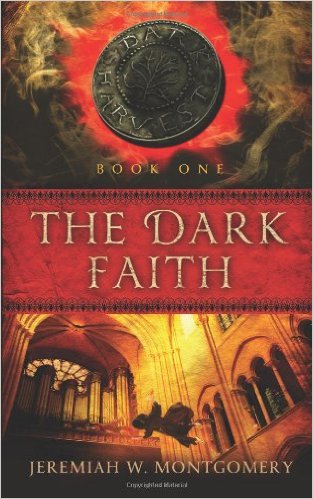 Interview by Brock Eastman Featuring The Dark Harvest Trilogy I want to introduce you to a series you may not have heard of, but one any spec fiction fan should read. I've been following Jeremiah's series from the beginning and have enjoyed the story's development thoroughly. He's published with P&R, which is also my publisher for The Quest for Truth series. Brock: Jeremiah thanks for joining us. First, will you tell us how you came up with the idea for Dark Harvest? Jeremiah: A friend of mine sowed the first seeds of Dark Harvest several years ago when he suggested to me that I read about the Synod of Whitby, a real event that occurred on the island of Britain in the kingdom of Northumbria in AD 664. After reading about the outcome of that synod, the questions arose: what if the synod’s decision had gone the other way? What would be the implications? Would the losers sit back and accept defeat, or might they try again, years later? Brock: Northumbria just sounds like a fantastical world, yet it really existed. Tell us about the main characters. Who are they, what makes them unique? And will you give us one fact about each that no one else knows? Jeremiah: Morumus is a monk for whom life is as serious as death. His seriousness stems from two sources. First of all, he is intelligent and introspective by nature. But secondly, horrific memories stalk the corridors of his mind. As the younger son of a king, Oethur is a prince turned monk. He is possessed of an easy humor, yet beneath the surface he is solid. When grim events force him to forsake the monastery for the battlefield, he will confront both foe and fear – and learn the true nature of courage. Urien is a woman imprisoned from her youth in a world of dark rituals. When she comes to realize the true character of her childhood faith, she rejects it. In time she comes to appreciate the beauty of the faith of Morumus and Oethur, but struggles to know whether or not it is actually true. All of the above you can learn from the books. But here are a few things you may not know … Morumus’s mastery of several languages is the embodiment of my own love for foreign languages. Yet unlike Morumus, I have yet to become fluent in anything beyond English. Oethur’s persistent dislike of peas is another echo of my own personality. I’ve heard it said that tastes change as we age. In some cases, that has proven true for me. But not for peas. Of all the characters in the series, Urien was the one who changed most from the first conception to final conclusion. In the first draft of The Dark Faith, she was not introduced until near the end, and shortly thereafter became a convert. But another friend convinced me that her conversion was too easy, and my editors persuaded me that she needed to arrive earlier in the story. And so I began to rework Urien’s tale, fleshing out her history and taking her along the tortuous path from paganism to skepticism to inquiry… and finally to faith. By the end of the trilogy, something quite surprising had happened: Urien became the main and most important character in Dark Harvest. The whole story begins and ends with her. Brock: It is interesting how a character who we (authors) don't intend to be significant can soon become a favorite. This happened with Obbin in my series. I never intended for him to continue from the first book and we'll he's still there four books later. In three sentences tell the us what this book about? Jeremiah: The Threefold Cord brings the theme of Dark Harvest – that there is an enemy far deadlier than dark magic – to its climax and resolution. It shows the reader how this theme irrevocably changes the life of each of the main characters. And finally, it demonstrates that every outward conflict in history is but another cycle of the great “invisible war” (to borrow a title from the late Donald Barnhouse). Brock: That's one of the things I connected with most in this series; the "invisible war." Too often we (Christians) don't consider how it's affecting our daily lives. Can you expand on the biblical background or basis for the series? Jeremiah: Dark Harvest is based on the overall biblical contrast between the Christian gospel and every other religion in history or today. The gospel of Jesus Christ is insistently exclusive, yet persistently gracious. Every other religion (or attempt to blend religions) is ultimately a manifestation of humanity’s darkest impulses toward self-salvation and self-worship. Brock: That’s a great explanation. Are any other books planned for the Dark Harvest series? Jeremiah: Though The Threefold Cord leaves several cupboards cracked and threads dangling (real history usually does), it is the last planned volume in the series. Brock: Sad, but understandable. Life is a continuing story that never truly concludes, it carries on from one generation to the next. Did you outline the Dark Harvest trilogy, or do you write as you go and let the characters take control of the story? Jeremiah: From the beginning, there was an overall outline to the series and a rough outline for the first book. Yet as I’ve alluded to above, The Dark Faith underwent some serious changes, and these cascaded into the sequels. The main story arc stayed the same, but there were several developments that I did not foresee when I first began. Chief among these was the transformation of Urien’s journey. But there were lesser surprises as well: the storming of Cuuranyth in The Scarlet Bishop, and the discovery of Melechur in The Threefold Cord. Neither of these existed in the original trilogy notes. These confessions aside, I am a stubborn proponent of outlines. After the changes to The Dark Faith, I made it a practice to create detailed outlines for The Scarlet Bishop and The Threefold Cord. After these outlines were drafted, I reviewed them with my editor. Having a complete outline in place allowed both sides of that conversation to examine the story as a whole, and surprising as it may sound, it was the process of thorough outlining that enabled me to work in creative developments. Because I could see the whole landscape clearly, it was relatively easy to know where I could make changes that would enhance the story without disrupting its overall movement. Brock: Being that this book has some roots with an actual historical event, what sort of research did you have to do? What things did you come up with on your own? Jeremiah: Dark Harvest is based in a world that intentionally parallels our own cultures and history. As you might expect, then, it involved a fair amount of research. Yet most of this research came through life experience. I spent many hours of my young adult life walking wooded paths and reading fantasy stories, and I enjoyed many semesters in seminary studying Ecclesiastical history and theology. As a late teen I had the privilege to visit the cities of London and Edinburgh, which gave me the opportunity to walk through castles, cathedrals, parks, and palaces. Where life left gaps, friends and further research filled the voids. I corresponded with an antiquarian book expert in order to describe certain aspects of a Dark Ages library. When I wanted to see a picture of a Roman bridge or an old church, I used the Internet. Brock: Certainly our ability to use the web for research has increased the accuracy to factual representations for our stories. I know for one of my series I used Google maps to walk inside places I was describing; it was amazing and a lot less expensive than flying there. What are your hopes for your future as an author? Jeremiah: As the pastor of a mission church in a diverse community, I hope to author resources aimed to help bring the unchanging Christian faith to a rapidly changing society. Brock: What can you tell us about any future releases you have planned? Jeremiah: I am working with my publisher to edit a new edition of The Westminster Shorter Catechism in Modern English that will include Scripture proofs. 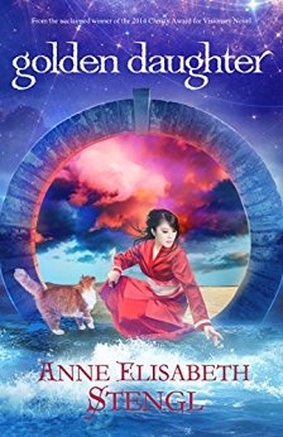 Interview by Brock Eastman Featuring Golden Daughter Anne Elisabeth Stengl has been working on her series Tales of Goldstone Wood since 2010 and now has 6 titles in the series. I sat down with her to ask about the newest release, Golden Daughter. Brock: Anne, for readers who may not be aware of Tales of Goldstone Wood, give us a high level overview of the stories you have written? Anne: The Tales of Goldstone Wood is a series of adventure novels set in the Near World of Mortals, the Far World of Faeries, and the Wood Between (also known as Goldstone Wood). The novels touch on various periods of history and visit many different kingdoms in the world, but the events of each story have profound effects on all of the others. Primarily, the series tells the saga of the Song Giver’s love for mortals and immortals alike, and the Dragon’s efforts to destroy both worlds by refashioning the hearts of men and women in his own dark image. Much classical imagery is present in the spinning of these tales, enhanced by vibrant humor, fairytale magic, and a large cast of endearing characters. Brock: You've envisioned such a magnificent sweeping world, full of many characters and places readers want to learn about. How have you mapped out this world of yours? Anne: I have been in the process of creating the world of Goldstone Wood since I was fifteen. I began by writing down simple paragraph summaries of various storylines spanning the history of this world (or worlds, rather). I still have many of the old notebooks in which I wrote down early versions of the tales I am now actively writing. Because I have been developing this world for so long, it’s easier than you might think to keep all of these storylines together. I know how the events of 1600 years ago shaped the events of now. I can write a story set in one time period, remaining fully aware of the history leading up to these events. Thus there is always a sense of Bigger Story in each Goldstone Wood novel—a sense that there is more to the picture yet to be revealed. Brock: This proves true when you read the series. You are left with this sense of a greater story unfolding. Tell us what drove you to write the latest tale, Golden Daughter? What about Masayi Sairu's story compelled you to tell it before the many other stories you have in those notebooks? Anne: Part of the decision to write Golden Daughter was pure chronological sequencing. The events depicted in Golden Daughter were referenced very specifically in my third book, Moonblood. After writing Moonblood, I jumped back 1600 years in the history of my world and began writing the books in chronological sequence leading back up to the first three novels. Thus I came to the time period of Golden Daughter and realized I needed to tell the story which had been referenced in Moonblood. The basic premise of the book came long before the plot and characters. But the story didn’t come alive until I discovered the character of Sairu, who serves as this adventure’s primary protagonist. Originally I had intended to make a different character in the story the primary heroine—the mysterious Lady Hariawan. But she was too cold and distant and, honestly, too powerful. I found her difficult to relate to, difficult to bond with. So I rethought the story, wondering what it might look like if told from the point-of-view of Lady Hariawan’s handmaiden. And, after all, a woman of such prominence and sacred importance to the empire would certainly have a very special girl as her handmaiden, right? So the mythology of the Golden Daughters came to be—these intelligent, dangerous, talented young woman trained to look like sweet and innocent flowers but who, in reality, are dangerous and devoted bodyguards. It was such a fun concept to explore, particularly in context with the cosmic stakes of this particular novel. Ultimately it’s a story I couldn’t resist writing! Brock: What is at the heart of this book? Anne: This story is about a sacred Dream Walker of the Temple of Hulan, a woman named Lady Hariawan. She has the ability to travel outside of her body into the realm of dreams, where she searches for a gate to the gardens of the moon goddess, Hulan. She is very powerful, and many different factions and nations want to either capture or kill her. Thus, to protect this sacred woman, the High Priest of Hulan hires a bodyguard—the titular Golden Daughter, Masayi Sairu. And Sairu finds herself in over her head as she battles forces she cannot begin to comprehend in her efforts to protect her new mistress! But Lady Hariawan has an agenda of her own. And the Dragon is at work in the hearts of men, motivating them to desperate, wicked deeds. The story culminates in a cosmic clash of false gods and monsters that deals with the painful question: Where is God in times of suffering? Why does He apparently allow such evil to reign in the world? This story is an epic like nothing I have ever before written, and I am thrilled to present it now to my readers. Brock: Who is Masayi Sairu? Anne: Sairu is the heroine of this adventure, a brave and bold bodyguard masquerading as a demure little handmaiden. She is pitted against phantoms, dragons, and assassins in her efforts to protect her mistress, the sacred Dream Walker. Brock: How do you think your readers will connect with her story? Anne: Sairu is an apparently strong young woman who hides deep wounds behind her smile. She is a damaged character, but the extent and nature of that damage is not readily apparent. As readers dig more deeply into her story and motivations, they begin to uncover the truth of what has been done to her over the years, and they realize how truly vulnerable she is. In this vulnerability, she is very relatable. She is possibly the most complex and interesting heroine to yet feature in the Tales of Goldstone Wood, and I have no doubt readers will enjoy her story. Brock: You’ve mentioned several villains. Can you explain who they are and their motivations? Anne: Well, there are many villains featured through the epic that is Golden Daughter! There are the Crouching Shadows, a legendary band of assassins bent on protecting their goddess at all costs. There are the barbarian Chhayan warriors, angry at the loss of their land and desperate for revenge against the emperor whom they see as a usurper. There is the tragic character of Sunan, a half-breed Chhayan who longs to leaves his barbaric heritage behind, but who is forced into an evil role and ultimately pursues his own destruction. But at the core of this story is the Dragon himself, also called the Death-in-Life. He longs for nothing so much as to see himself as the dark god of all worlds, to see mortals and immortals alike formed in his own image. He is a terrible creature of malice and destruction, and quite a formidable foe! Brock: The Dragon is indeed a terrifying villain. The threat he puts upon Goldstone Wood, parallels the dangers in our own. How does this villain differ from other villains in your series? Anne: The Dragon has featured many times throughout the series, either as the primary villain or as an agent of evil behind the scenes, so to speak. Sunan, however, is a particularly interesting villain in that he has had small features in previous stories. He makes a short appearance in Veiled Rose, my second novel, when he helps the hero of that story on his journey to the Far East. In my novella Goddess Tithe, Sunan plays the heroic lead. His history is hinted at in both of those tales, but Golden Daughter begins to reveal the truth of his story . . . a story which is continued in my upcoming autumn 2015 release, Poison Crown. Brock: The latest release was not released by Bethany House, but instead Rooglewood Press. Can you tell us why you made that decision and tell us about Rooglewood Press? Anne: Rooglewood Press is my own independent brand. That’s right! After six books, four Christy Award nominations, and three wins, I am moving indie. And I am very excited about this new direction my series and my career have taken. My goal is to continue producing books of the same quality and caliber as my readers have come to expect, but now I get to make more creative decisions about series direction, length of the books, thematic elements, etc. Brock: What sort of advantages have you found in indie publishing? What sort of disadvantages? Anne: I absolutely love the creative control afforded by indie publishing. I used to labor long and hard to fit my epic storylines into the short word counts my publisher gave me. Now I get to determine the length of the book—and while I still try to write each story as short as it can be (tight writing is strong writing!), I can tackle much bigger ideas and premises than I ever dared try before. It’s a wonderful feeling, and Golden Daughter is easily the book I am proudest to have written. The disadvantages of self-publishing go hand in hand with the advantages. Assuming creative control also means assuming much more labor than I ever had to deal with when publishing traditionally. I am now in charge of managing my own editing, formatting, cover imaging, typesetting, marketing, etc. Whether I’m hiring freelance artists and editors or learning new skills and putting in the work myself, it’s all time- and labor-intensive. But the rewards are tremendous, and I’ve never been afraid of extra work. Brock: What sort of advice would you give to aspiring novelists? Anne: My advice to aspiring novelists is always the same: Write, write, write, and read, read, read. The more you write, the better you’ll get. Like any other art, writing must be practiced to be perfected. Don’t expect yourself to write literary brilliance right away! And certainly don’t rush into publication. Develop your voice, your style, your technique. Develop your confidence by putting in those long hours of practice. And, of course, the more you read and the more broadly you read, the more you’ll know what is possible for good writing! Spend time on the classics, discover those authors who have lasted through the ages. Spend time on modern voices who are succeeding in the current market, and learn what they know. You can never read too much if you want to be a novelist! 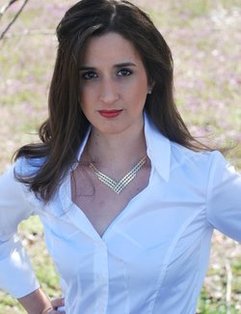 Anne Elisabeth Stengl makes her home in North Carolina, where she lives with her husband, Rohan, a kindle of kitties, and one long-suffering dog. When she’s not writing, she enjoys Shakespeare, opera, and tea, and practices piano, painting, and pastry baking. Her novel Starflower was awarded the 2013 Clive Staples Award, and her novels Heartless, Veiled Rose, and Dragonwitch have each been honored with a Christy Award. To learn more about Anne Elisabeth Stengl and her books visit her blog.  My next post in our series introducing the authors from my upcoming project is from Rebecca Pettett. Take a moment and find out about a book that she found inspiring. I've really been inspired by a lot of different stories, so it's kind of unfair to say that there's been a “most,” however, I was really inspired by the book called Bruchko—it's a true story by Bruce Olson. In this autobiography, Bruce tells his story of how he felt God calling him to the mission field around the age of nineteen, and that God wanted him to minister to a tribe in Colombia called the Motilones. Bruce didn't want to go—God made him go anyway. Reading this story, it's inspiring to see that Bruce went through lots and lots of trials, and yet God was with him through all of it. It was also both inspiring and challenging for me to read about how Bruce went through the unbelievable, and he still remained faithful to the Lord. Obviously, he couldn't have done it without the Lord, and there were probably plenty of times Bruce questioned what God was doing, but it's encouraging to know that the Lord never left his side and was always faithfully there for him. “Crazy” is probably a good definition of Bruce's testimony; in fact, if you ever read it, you may have a hard time believing that it's true. But regardless of how crazy it is, it reminds me that the Lord will never leave my side, and He will bring me through each and every one of my own trials. Bruchko is a great read of twists and turns, encouragement and conviction, and is definitely one of my favorites. 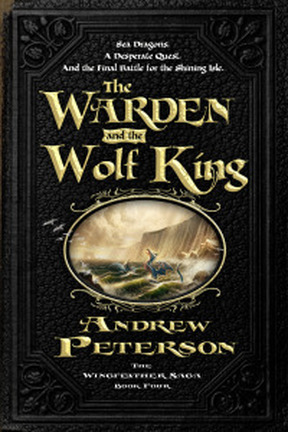 Interview by Brock Eastman Featuring The Warden and the Wolf King Brock: So Andrew we know you first as a music artist. What made you want to write the Wingfeather Saga and how did the idea come about? Andrew: I’ve loved these kinds of stories since I was a kid. My reading interests are pretty broad—which is to say that I don’t necessarily love fantasy as a genre, but I love good books, good stories, whatever genre they happen to be. That said, fantasy has a certain kind of power that drew me in when I was young, and I still get butterflies in my stomach whenever I walk through the young adult or fantasy/sci-fi section of a bookstore. So when I finally decided to stop talking about someday writing a book and to actually write one, there was never any doubt that I wanted to try and tell a big, sweeping adventure story. Brock: That you did, with four books and a creaturepedia in the series, you’ve created and immersive world with wonderfully engaging characters. Who are the main characters in the series and what makes them unique? Andrew: The three main characters are siblings named Janner, Kalmar, and Leeli. Janner (12) is the eldest, he’s a bookworm, and he wants more than anything else to be at peace in the world along with his family. His little brother Kalmar (11) is the artist, and he has a tendency to get into trouble because he’s impulsive. Leeli (9) is the musician. She walks with a crutch because of an injury to her foot when she was a baby, but that doesn’t keep her from being fiercely independent. Brock: Might you give us one fact about each of the characters that no one else knows, even your most avid fans? Andrew: Facts that no one knows: Janner likes apples, but he likes cheese more. Kalmar once stole a berry bun from the Dragon Day festival and felt so bad about it the next day that he bought three berry buns from another stand and slipped them onto the platter of the first baker. Then he decided three buns was too much penance and ate one. Leeli always thought Faddy, the elder of the Blaggus boys, was very handsome, and before she met Thorn O’Sally (of the Green Hollows), she assumed she would marry him, even though she hated the idea of her name being Leeli Blaggus. Brock: Ha, ha, you put a grand smile on my face. And this is the sort of wit and humor I’ve come to expect and enjoyed while reading the series. In three sentences what is Warden and the Wolf King about? Andrew: Janner, Kalmar, and Leeli Wingfeather—Throne Warden, High King, and Song Maiden of the Shining Isle—are children, but find themselves nonetheless at the center of a great battle for the freedom of the world from a monster named Gnag. While Leeli, using her music as a weapon, leads the warriors of the Green Hollows in the battle against the Fangs of Dang, Janner and Kalmar attempt to sneak through Gnag’s dungeons to face him alone. Ultimately, though, the story is about Janner’s struggle to learn what it means to be a hero. Brock: That’s a theme we can all relate to in our own lives in our own situations. What does it take to be a hero in the plan God has for us? Though you have said the series has come to a conclusion, any chance of more books? Your fans really got behind you on KickStarter, I am sure they would again. Andrew: Yes! I can’t wait to write my next story. I’ve started one, but music is a big part of what I do so I have to focus on the next album right now. We’re putting together a collection from the last 15 years of music, called After All These Years, then I’ll start writing songs for a new record next year. After that I’ll be able to dedicate more time to a book. I don’t know exactly what it will be yet, but I’m sure there will be plenty of danger, adventure, and strangeness. I can’t wait. Brock: And neither can I. Did you outline the entire series, or do you write as you go and let the characters take control of the story? Andrew: There was a sort of outline, but it was mostly in my head. I had a general sense of where the story was going, and when I got stuck I would write quick chapter synopses in order to get the thing moving again. But that thing you hear about, where the characters start doing their own thing? That totally happened, weird as it sounds. More than just the characters, though, the story seemed to suggest itself to me. Unless you’ve written something like this it’s hard to understand, but there’s this real sense that the story “wants” to be told in a certain way, that it’s better at times than the author could have planned. Brock: That I understand 100%. I’ve often tried to explain this to students when I speak, or in interviews. It’s truly amazing how one’s characters can lead you down a path and create a story that comes so alive. I’m a card carrying, “You might think I’m nuts, but my characters speak to me,” author myself. You noted on your website that you had to combine a planned book 4 and 5 together. Was that hard? Did you leave anything out, or is it just a thicker book? Andrew: No, I didn’t really combine two books. Back in the day, after I finished book one, I planned out the story as well as I could, and it divided neatly into five books. But halfway through book two I realized that things were happening faster than I intended, and four books made more sense. The reason this one is twice as long as the others is because there were so many loose ends to be tied up. Remember at the end of The Lord of the Rings when the ring of power is finally destroyed and there’s still two hundred pages left? The first time I read it I wondered what on earth still had to happen. But it turns out, those last two hundred pages are my favorite in the whole book. Even once the bad guy is defeated, there’s this massive mess to be cleaned up, I realized, and the story just couldn’t end there. Not only that, there were lots of questions and characters that I wrote into the story early on and kind of forgot about. Then I’d get emails from readers saying, “I can’t wait till you bring So-and-so back!” Oops. So I had to make sure and bring the whole saga’s story arc to a finish—not just the fourth book’s. It was much more difficult than with the other books. Brock: You and I need to exchange notes more often. I’m in the edits for book 4 in The Quest for Truth right now, and my editors biggest concern was the disappearance of some characters that readers have come to love. Alas it makes editing a 100k word manuscript very interesting when you have to integrate new storylines in to the book after it’s written. And now the fourth book Warden and the Wolf King has been out for a little while,what has been the reaction to the final installment from your readers? Andrew: To be honest, the reaction has been overwhelming. After ten years of work, I desperately hoped the readers would resonate with the ending. I’ve gotten several emails that were so gratifying I actually cried while reading them. More than just the thrill of knowing that I’d written a book (which is a thrill that fades in about five seconds), I wanted to tell a story that would really get into peoples’ hearts. I hoped that they would close the final book and really feel something. It’s not like everyone is going to have that reaction, but I’ve gotten enough feedback to know that at least a few people have, and I thank God for that. I really wanted the story to still be alive and kicking in the readers’ hearts long after they finished the story, which is why it ends with a question mark. Brock: Probably the most humbling and honoring thing of writing, is finding that someone reading it has been truly impacted. How does your music complement your writing? Andrew: It gives me something else to do while I’m working on a story. I have a songwriter friend who took up painting a few years ago, and he says it’s been a tremendous help—not just to his songwriting, but to his soul. There’s a mysterious connection between one artistic discipline (like painting) and another (like songwriting), in which one improves the other. Back when I first started the Wingfeather Saga I drew a toothy cow (the most horrifying of creatures in Skree!) and was surprised that my drawing was better than it had been in high school when I was building a portfolio for art college (which I never applied for). For some reason, ten years as a songwriter had made me better at drawing, though I hadn’t practiced my technique a bit. So even though I can’t explain it, I suspect studying songwriting may help my storytelling, and storytelling may help my drawing, and drawing may help my gardening, or whatever. So even though I’m sometimes frustrated that I’m supposed to be writing a book when I really want to be working on music, or that I’m working on an album when I wish I could dig into another story, if I was only working on one or the other I’d likely be bored out of my skull. Brock: With that said, has any of your writing (brainstorming) influenced new song ideas, or song writing? Andrew: Nothing specific comes to mind, but there’s a common theme that seems to run through both the books and the music—an ache for home, a hope that our dissatisfaction with life and the brokenness of things points to a day when there will be justice and peace and ultimate healing. Brock: How did you balance your music touring with writing the novel? Andrew: This may sound like a trite answer, but it’s true: day by day. My family and I are used to flying by the seat of our pants, making it up as we go, and then looking back at the end of the year without knowing how we pulled it off. I just tried to write whenever I could, and I toured whenever I had to. Meanwhile, Jamie and the kids are the most encouraging, kindhearted people I know. Brock: It’s so key to have a supportive and loving family. I’m blessed by my wife and three girls. What do you hope kids take away from Wingfeather Saga? Andrew: First, I hope they simply love the story. As I was writing the book I was thinking, “What needs to happen that will make the reader want to turn the page and keep reading?” That’s the first thing. Beyond that, I hope they’re able to believe that even though the world is at times a terribly dark place, there’s a power and a light that dwarfs the darkness. The bad guys are scary but the good guys win. I hope they feel some kind of longing. I hope they’re ultimately comforted and reminded that they’re not alone. That’s what my favorite books did for me when I was young. Brock: Was that when you realized you wanted to write a novel? Andrew: When I was in the eighth grade and I read my first Dragonlance book. I tried writing a lot back then, before music took over. Brock: Well many of our thankful for your music, and we’re glad you got to put your hand to writing as well. In what ways does your faith impact how you approach writing? Andrew: My faith informs every aspect of the creative process. It’s no exaggeration to say that before I turned whatever gifts I had over to Christ, I had nothing to write about. Every song was a lame girlfriend song, every story attempt was hollow. But once I began to truly believe that the stories I grew up reading in church were true stories—true in both senses of the word—the world seemed to be brimming with beauty and story and song. If I believe that God is the source of everything good and true and beautiful, then I should pay close attention to the way He tells stories. I should pay attention to the motifs and symbols and metaphors He uses. I should approach the writing of a song or a story with a sense of humility and wonder, because every creative act is possible only because of the Creator. That’s what Tolkien was doing with The Lord of the Rings—he was telling a eucatastrophe story (which is the opposite of a catastrophe) because he recognized that kind of storytelling being employed by God in all of creation and even the Incarnation itself. Brock: I often get excited when I think about how we (Christian Artists/Authors/Creatives) have a real advantage over non-Christians, we’ve got a direct link to the Creator of everything. And if we truly seek His will and follow His lead, amazing things can happen. We’re simply the vessel to deliver his message! What was your favorite book as a teen? Andrew: I keep bringing it up, but nothing really comes close: The Lord of the Rings. I didn’t read it until I was about 18, and up to then I’d read a lot of Poe, C. S. Lewis, Arthur Conan Doyle, along with a bunch of terribly written but terribly enjoyable fantasy novels. I loved the Prydain books by Lloyd Alexander (which are enjoyable and well-written). Brock: Now some fun questions, less related to the writing and music. What’s your favorite place to vacation? Andrew: Castlerock, Northern Ireland. We went as a family on a tour/sabbatical last year, and fell in love. If I ever disappear, that should be the first place the authorities look. Brock: Do you have a favorite Bible verse? Andrew: I love the beginning of Colossians, about the preeminence of Christ: “He is the image of the invisible God, the firstborn over all creation,” and it goes on to describe Jesus as the center of everything. I read it at the end of every Christmas concert, and it always gives me chills—especially in light of having just sung about him being a little infant. Brock: Do you listen to music while you write? If so what are some examples? Andrew: I usually write in a public place, whether Starbucks or a library or outside in a park. I like the feeling of being present in an active place but slightly detached from it, observing from a corner. Then I put on headphones and listen to movie soundtracks. For the first book it was Thomas Newman’s amazing score for A Series of Unfortunate Events. With this last book I mainly listened to Michael Giacchino’s Super 8. It’s creepy and intense at times, but when it’s tender and beautiful it evokes a lot of my childhood feeling of adventure—or the potential of it. I even made playlists for “Creepy” scenes, “Tense” scenes, and “Warm” scenes, and put them on repeat until the chapter was finished. Any music with words gets me thinking about lyrics, so it has to be instrumental. Brock: Again we must exchange notes sometime. I do the same thing with certain playlists to invoke the mood of the scene or action sequence, and for me as well lyrics find their way into the text of my book if I am not careful. Lastly, Coke or Pepsi? Andrew: Neither. It’s either coffee or water for me these days. Brock: Thanks Andrew so much for the glimpse into your writing of both books and music. We look forward to reading great new books from you in the future. |
Follow meArchives
May 2024
Categories
All
|
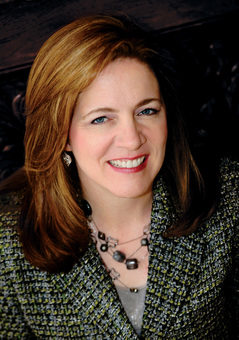
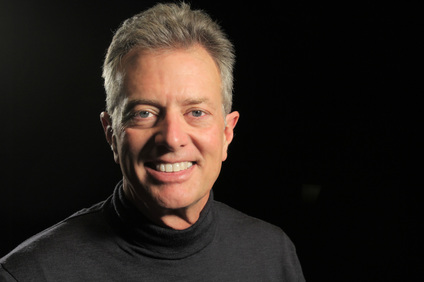
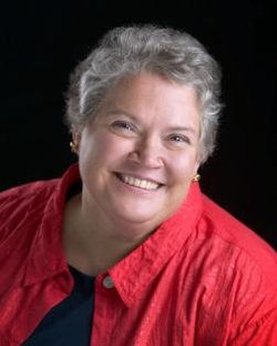

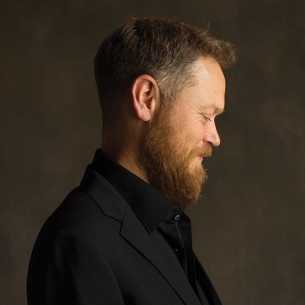
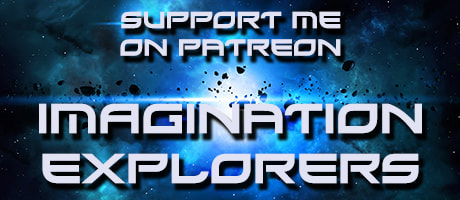
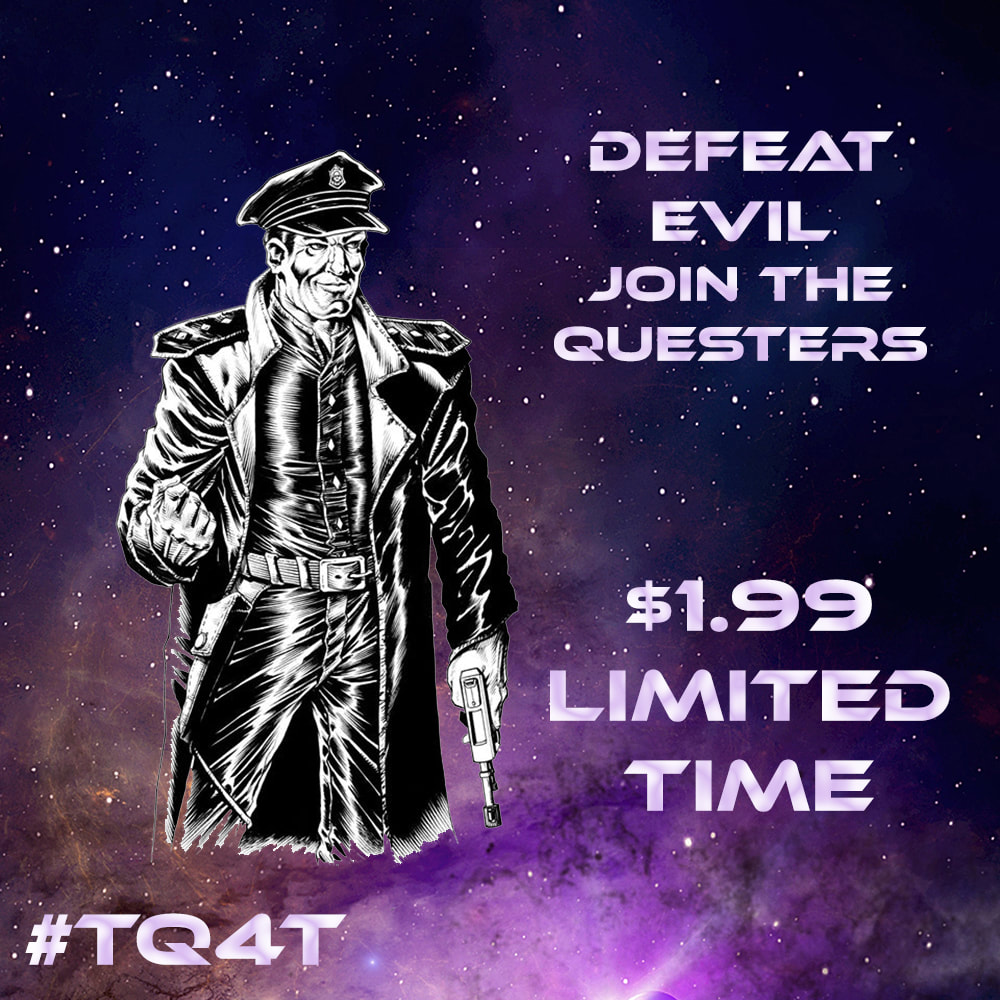
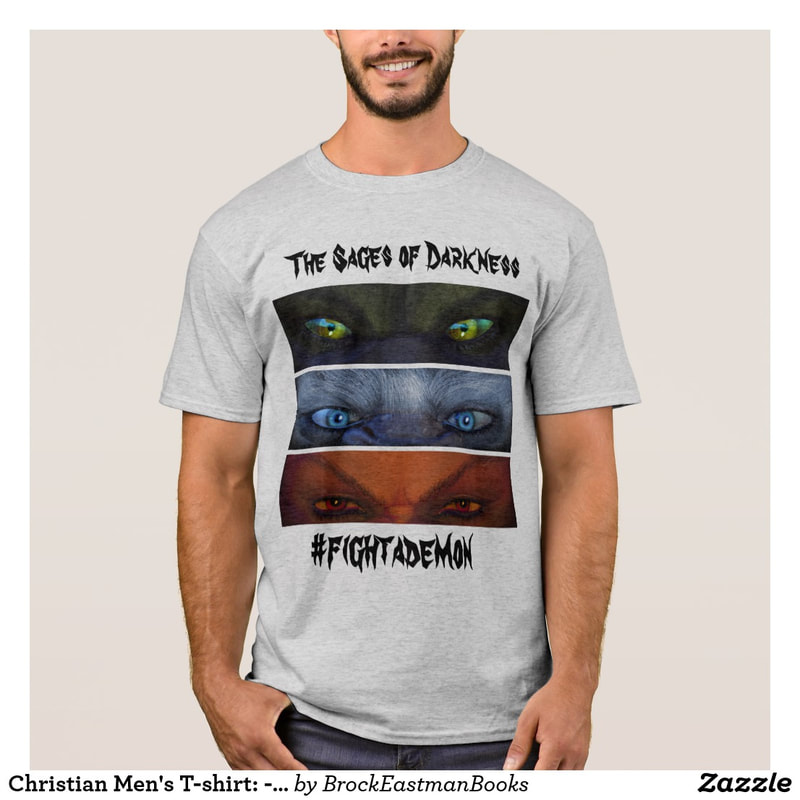

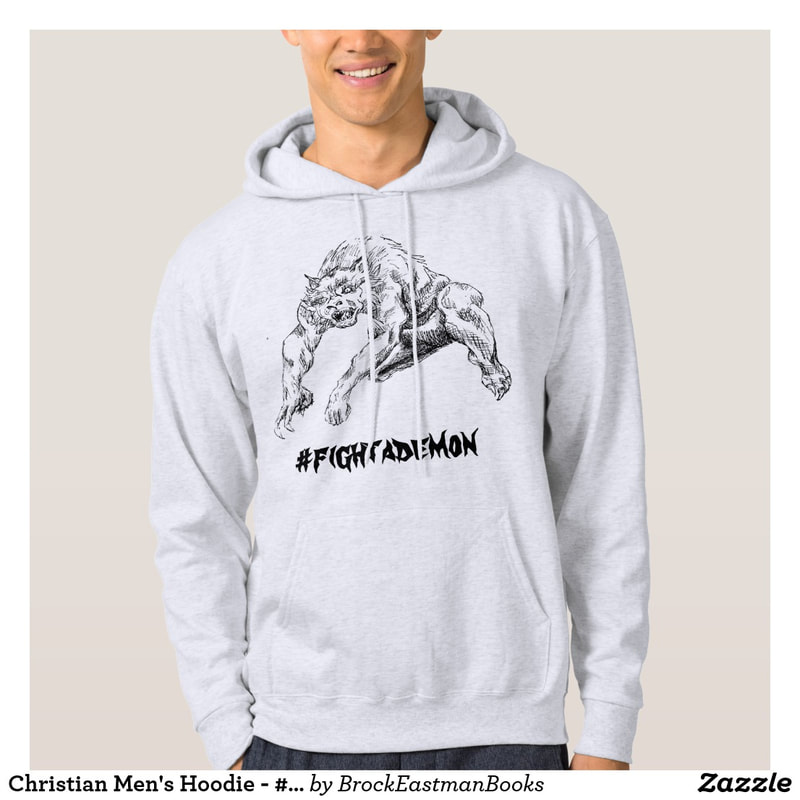

 RSS Feed
RSS Feed